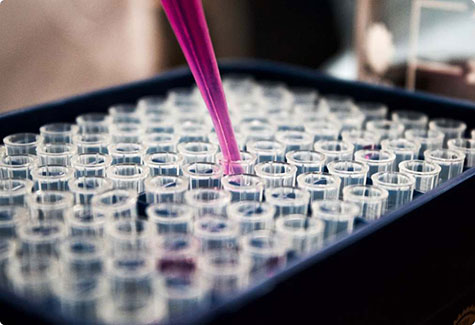Safe Brain Initiative (SBI)
Chair
Assoc. Prof. Finn M Radtke, Nykoebing Hospital University of Southern Denmark, SDU
Vice-Chair
Prof. Basak Ceyda Meco, Ankara University faculty of Medicine, Turkey
SBI Board Members & Leads:
- Finn M Radtke
- Karina D. Jakobsen
- Basak Ceyda Meco
- Joana Berger Estilita
- Maria Wittmann
- Wolfgang Buhre
- Edoardo de Robertis
International Partners and Flagship centers:
- Singapore
- Bonn
- Nykobing
- Mannheim
- Ankara
- Utrecht
- Perugia
- Bern
- Oslo
- Munich
For more information on the Safe Brain Initiative Research Group, you can visit their website at safebraininitiative.com
Background
The Safe Brain Initiative (SBI) is a non-profit project that aims to provide clinical caregivers and relevant partners with high-quality patient and treatment metrics to improve patient outcomes and treatment processes in Anaesthesiology and perioperative care. The project’s goal is to establish and fine-tune Patient-Reported Outcome Measures (PROMs) to prevent and mitigate early, intermediate, and long-term complications such as postoperative delirium (POD) and neurocognitive disorders (PND), Nausea, Stress, Anxiety, Pain, discomfort and other side effects that may occur during the perioperative period. Moreover, the initiative focuses on PREMs and Staff REMs, efficiency, economic aspects, and sustainability, taking a holistic approach. The initiative is based on robust real-world data evidence and is operationalized on a data-driven dashboard that provides structured feedback to healthcare professionals.Patient centred precision care (PC)2 methodologies form the foundation of the SBI’s approach.
The primary focus of the SBI RG and network is:
- To promote the importance of monitoring, detecting and ultimately decreasing and preventing the adverse side effects of surgery and anaesthesia in our daily routine care.
- To apply preventive patient-centred precision care.
The SBI RG network aims to systematically address the feedback gap in perioperative care by collecting and analysing real-world data.
Research Question
SBI is committed to advancing patient-centred precision anaesthesia and perioperative care as a cornerstone of research-driven quality improvement. It achieves this through the meticulous monitoring and enhancement of Patient-Reported Outcome Measures (PROMs), Patient-Reported Experience Measures (PREMs), and the management of perioperative cognitive dysfunctions. By implementing a dashboard solution for real-time monitoring, SBI leverages evidence-based, non-invasive preventive strategies, all within a non-profit framework driven by real-world data. Its objectives are clear: to provide healthcare professionals with effective tools for structured feedback on patient well-being and to create a sustainable cycle of learning that proactively identifies and mitigates perioperative risks. SBI’s innovative approach aims to markedly elevate care quality, improve patient outcomes, and fulfil the essential demand for a comprehensive, patient-centred methodology in the realms of anaesthesia and perioperative care management.
SBI RG aims are defined as:
- Improvement of patient-centred outcomes (SBI -Core)
- Increase efficiency (e.g, total short, intermediate and long-term cost of care) (SBI Muda)
- Increase patient and staff’s satisfaction with received & provided care (SBI us)
- Evaluate and decrease the sustainability impact and carbon footprint (SBI green)
Objectives
The Safe Brain Initiative monitors and prevents postoperative delirium and neurocognitive disorders, provides effective anaesthesia care, assesses patient and team satisfaction, and evaluates environmental sustainability impact. Based on international guidelines, 18 core recommendations were established to address potential complications and challenges associated with anaesthesia.
The SBI presents an innovative, cost-effective, and patient-centred approach to perioperative care.
The objective of the Safe Brain Initiative network is to implement the SBI approach in all interested centres across Europe, focusing on four key areas:
- Acquiring PROMs to monitor and prevent postoperative delirium/neurocognitive dysfunction (SBI-Core).
- Facilitating strategic guidance for patient-centred anaesthesia management through the SBI-Muda initiative. This project seeks to optimise perioperative efficiency, mitigate postoperative delirium/neurocognitive dysfunction, and elevate patient-reported outcomes. It provides weekly dashboard updates offering insights into OR and hospital metrics – encompassing e.g. start times or delays, suture-to-incision intervals, time expended in the post-anaesthesia care unit (PACU), and duration of postoperative hospital stays – all of which are contextualised alongside individual core outcomes.
- Assessing patient and team satisfaction with perceived care quality (SBI-Us).
- Evaluating and reducing environmental sustainability impact (SBI-Green).
The ESAIC-endorsed SBI network was initiated:
- To perform studies, RCT, meta-analyses, and educational programs (bootcamps, masterclasses, online education modules) to monitor and improve the feedback systems in perioperative care.
- To support meetings and communication between different research groups and ESAIC forums aiming to implement a patient-centred precision perioperative anaesthesia care for better PROMs and postoperative outcomes.
Current projects
ESAIC SBI Research Group Topic Tracks (status January, 2024)
| Track | Topic | Aim/focus | Organization/leads |
| I | Epidemiologic & statistic foundation for real-world precision patient-centred care evidence data | Maria Wittmann | |
| II | Aim of Perioperative Care – Consensus Project | Joana Berger | |
| III | SBI EEG Bootcamp for Anaesthesia consortium | Matthias Kreuzer Finn Radtke | |
| IV | Pain, Nociception, multimodal Analgesia Track | Patrice Forget Esther Pogatzki-Zahn | |
| V | Perioperative Neurocognitive Disorders (PND) | Lis Evered | |
| VI | SBI-Green | Mark Coburn Susanne Koch | |
| VII | SBI-Trajector & Tech Innovation | David Ahmadi | |
| VIII | SBI-faces and VCI | Karina Jakobsen | |
| IX | SBI-Buddy | Interface content, design and development | Basak Meco Finn Radtke |
| X | SBI-muda | Cost and efficiency | Wolfgang Buhre |
| XI | SBI-us | PREMs & Staff REMs | |
| XII | Funding proposals | Maria Wittmann | |
| XIII | Publication guidance | ||
| XIV | Education | Joana |
Aim of Anaesthesia Definition Delphi Trial:
This study aims to define and establish clear aims for anaesthesia to enhance patient-centered care and outcomes. Using a modified Delphi process, stakeholders reached a consensus, resulting in a refined definition of anaesthesia and the acceptance of 49 specific aims. These defined aims provide a foundation for patient-centric and precise anaesthesia care, potentially influencing the evolution of precision anaesthesia practices across healthcare domains.
The impact of the Safe Brain Initiative on Postoperative Delirium: a multicenter cohort study:
This study examines the Safe Brain Initiative as a perioperative care bundle to reduce postoperative delirium (POD) incidence. Through retrospective cohort analysis across four hospitals (>10’000 patients), the SBI’s implementation was associated with a substantial decrease in POD rates, suggesting a potential effectiveness of structured perioperative care.
We are excited to invite your center to participate in the groundbreaking Safe Brain Initiative (SBI), a collaborative effort to revolutionise perioperative care and elevate patient outcomes.
Why Should Your Center Join?
- Impactful Research: Participating in the SBI provides a unique opportunity to contribute to pioneering research that prevents postoperative delirium and neurocognitive disorders. By leveraging patient-reported outcome measures (PROMs), your centre can play a pivotal role in shaping the future of patient-centred precision anesthesia care.
- Enhanced Patient Outcomes: The SBI’s primary goal is to improve patient outcomes. By collaborating with us, you’ll be part of a network that actively works towards reducing adverse effects of surgery and anaesthesia, thus ensuring safer and more efficient postoperative experiences for your patients.
- Global Collaboration: The SBI is endorsed by the European Society of Anaesthesiology and Intensive Care and involves centres from across Europe. By joining this network, you’ll have the chance to collaborate with like-minded professionals, share insights, and collectively drive advancements in perioperative care.
- Innovative Approach: The SBI’s multi-faceted approach encompasses acquiring PROMs, implementing patient-centred anaesthesia management strategies, assessing patient and team satisfaction, and evaluating sustainability impact. Your centre’s participation will contribute to innovative solutions that positively impact patient care and environmental sustainability.
How Can Your Center Participate?
We invite you to embark on this transformative journey with us. By becoming part of the Safe Brain Initiative, your centre can actively contribute to research, studies, and educational programs that shape the future of perioperative care. Your involvement will be instrumental in creating a patient-centred precision care approach that enhances outcomes and improves overall patient experiences.
To learn more about the Safe Brain Initiative and how your centre can be a catalyst for change, please visit our official website at safebraininitiative.com.






